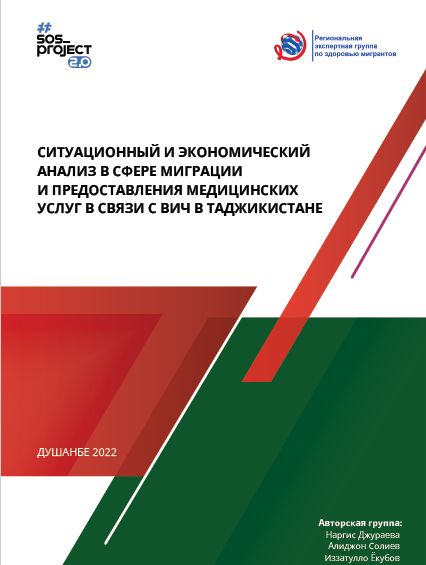According to official data, an average of 550,000 labor migrants leave Tajikistan annually to work abroad. Active labor migration from the Republic of Tajikistan, caused by a number of socio-economic and demographic factors, has brought not only economic benefits, but also certain challenges for both countries of origin and destination.
There is a lack data on migrants health, as this group is difficult to cover in studies due to constant movement. Many people in receiving countries fall out of the sight of medical professionals due to language and cultural barriers, illegal work etc.
Today, in Tajikistan, migrants are recognized as a vulnerable group and are included in national HIV programs. More than 300,000 migrants return to the country every year, and in the absence or interruption of treatment, they increase the risk of infection of their partners with HIV, tuberculosis, hepatitis and STIs. The prevalence of HIV infection among migrants in 2020 is significantly higher than in the general population.
The purpose of this study was to identify the barriers that limit access to health care in Tajikistan for people living with HIV and have experience of migration, and to discuss responses to overcome these barriers. The publication is available in Russian and Tajik languages.
